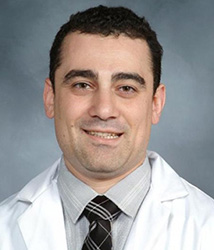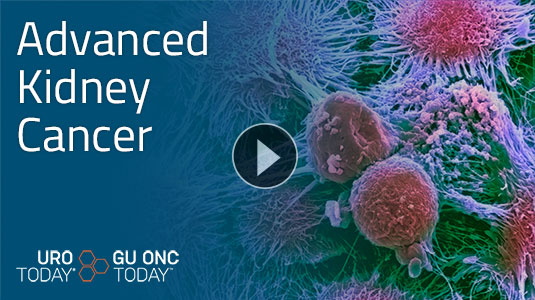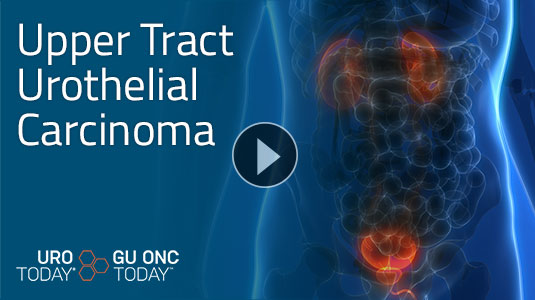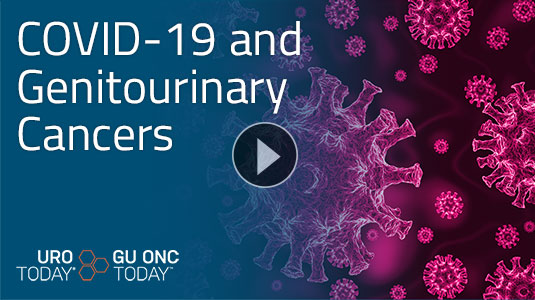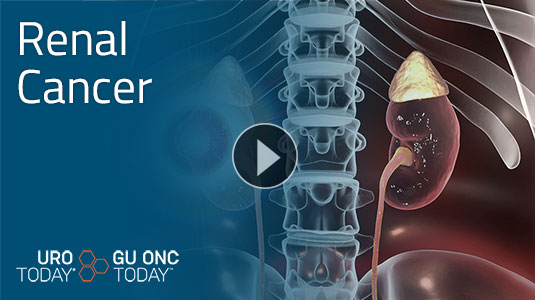AUA 2023: Surgical Complications after Robotic Partial Nephrectomy
Presented by Alexander Kutikov, MD, FACS
Alexander Kutikov lead a talk on the surgical complications associated with Robotic Partial Nephrectomy. He starts by highlighting a collaborative review he and I worked on for European Urology that walks through decision making for the management of localized solid renal masses – where a key decision point is the choice to treat the tumor, and at which point, we have to choose between radical nephrectomy, partial nephrectomy, and ablative options.
Read More
WCET 2022: Radiation in Endourology: What You Might Not Know!
Presented by Duane D. Baldwin, MD
On the importance of wise radiation administration in urology, Dr. Baldwin, professor of Urology, Director of Urologic Research at Loma Linda University, gave an engaging presentation. In the beginning, in an abdominal-pelvic CT without contrast, patients will receive 10-20 mSV of radiation, i
Read More
WCET 2022: Simulation Development in Endourology: How Do We Get What We Need
Presented by Zachary E Tano, MD
The session began with an interesting presentation by Dr. Lauren Poniatowski where she introduced the idea of cognitive task analysis and how it relates to 3D printing of surgical models. She defined three learning domains: psychomotor, emotions/attitudes, and cognitive, which consists of knowledge,
Read More
ESMO 2022: Adjuvant Nivolumab Plus Ipilimumab vs Placebo for Localized Renal Cell Carcinoma at High Risk of Relapse After Nephrectomy: Results From the Randomized, Phase 3 CheckMate 914 Trial
Presented by Robert J. Motzer, MD
On Sunday, September 11, 2022, in Presidential Symposium II at the ESMO Annual Congress, Dr. Motzer presented highly awaited results from the CheckMate 914 trial, examining the role of adjuvant nivolumab and ipilimumab in patients treated with nephrectomy for localized renal cell carcinoma at a high risk of relapse.
Read More
ESMO 2022: Do the Results of the Perioperative Renal Cancer Trials Make Any Sense?
Presented by Thomas B. Powles, MBBS, MRCP, MD
The 2022 ESMO annual meeting featured a kidney cancer session, including a discussant presentation by Dr. Tom Powles discussing two key abstracts including “IMmotion010: efficacy and safety from the Phase III study of atezolizumab vs placebo as adjuvant therapy in patients with renal cell carcinoma (RCC) at increased risk of recurrence after resection” presented by Dr. Axel Bex, and “Phase III RandOmized Study Comparing PErioperative Nivolumab versus Observation in Patients with RCC Undergoing Nephrectomy (PROSPER, ECOG-ACRIN EA8143), a National Clinical Trials Network trial” presented by Dr. Mohamad Allaf.
Read More
AUA 2022: AUA Guidelines Update: Renal Mass
Presented by Steven Campbell, MD, PhD
The 2022 Annual Meeting of the American Urological Association was host to an AUA guidelines update session focused on renal masses, presented by Dr. Steven Campbell, MD, PhD.
Read More
AUA 2022: Management of Incidentally Discovered 3cm Solid Renal Mass Cancer: Panel Discussion
Presented by Costas Lallas MD, Brian Lane MD, Michigan State University, Lee Ponsky MD, Jaime Landman MD
Friday morning at the 2022 AUA kicked off with a panel discussion consisting of thought leaders in the management of incidentally found 3cm solid renal masses. Dr. Costas Lallas, MD moderated the session which began with four-minute presentations from each panelist.
Read More
EIKCS 2022: Biomarker Discovery Through Single-cell RNA Sequencing
Presented by David Braun, MD, PhD
During the 2022 International Kidney Cancer Symposium (IKCS): Europe meeting focusing on biomarker discovery in renal cell carcinoma (RCC), Dr. David Braun discussed the potential of single-cell RNA sequencing to facilitate biomarker discovery. In doing so, he emphasized how single-cell RNA sequencing can improve our understanding of the underlying biology of RCC, with important implications for both biomarker discovery and therapeutics.
Read More
EIKCS 2022: Biomarker Discovery Through TCR Sequencing
Presented by Samra Turajlic, PhD, MBBS, MRCP
In the tenth session of the 2022 International Kidney Cancer Symposium (IKCS): Europe meeting focusing on biomarker discovery in renal cell carcinoma (RCC), Dr. Samra Turajlic presented on the value of T cell receptor (TCR)-related metrics for understanding and predicting the response of immune checkpoint inhibition in clear cell renal cell carcinoma.
Read More
SIU 2021: AUA Lecture: 2021 Renal Mass Guideline Update
Presented by Sam S. Chang, MD, MBA
The SIU 2021 annual meeting included a plenary session with the AUA lecture provided by Dr. Sam Chang discussing the 2021 AUA Guideline for renal masses and localized cancer, specifically evaluation, management, and follow-up.
Read More
After Immunotherapy Fails, What's Next?
Presented by Toni K. Choueiri, MD
(UroToday.com) In conjunction with the Scientific Congress held as part of the American Society of Clinical Oncology’s (ASCO) Annual Meeting in May 2020, an Educational Symposium was convened on August 8 to 10
th. In a session entitled “Too Many Choices: How to Select the Best Treatment for Your Patient With Kidney Cancer”, Toni Choueiri, MD, presented a plenary talk discussing the subsequent lines of therapy for patients with metastatic renal cell carcinoma (RCC) who have previously received immunotherapy.
Read More
Sequencing and Combining Targeted and Immunotherapy
Presented by Jaleh Fallah, MD
The 2020 American Society of Clinical Oncologists (ASCO) virtual education program featured a session on the evolution of renal cell carcinoma (RCC) treatment, including a presentation by Dr. Jaleh Fallah from the Cleveland Clinic discussing sequencing and combining targeted and immunotherapy. Over the last couple of years, trials have utilized combination therapy to continue improving outcomes among patients with metastatic RCC.
Read More
SUO - AUA Summer Webcast: Update on Emerging and Novel Imaging in Renal Cell Carcinomas
Presented by Ashkan Malayeri, MD
(UroToday.com) The Society of Urologic Oncology held a virtual meeting on Saturday, July 18, 2020, in place of the usual meeting held at the American Urological Association annual meeting. This virtual meeting was divided into sessions on bladder cancer, kidney cancer, and prostate cancer. In the session on kidney cancer, Ashkan Malayeri, MD, presented an "Update on Emerging and Novel Imaging in Renal Cell Carcinomas (RCCs)," focusing on four areas: radiomics and radiogenomics of RCCs, machine learning and artificial intelligence.
Read More
EAU 2020: Immunotherapy Combinations for Intermediate-Poor Risk mRCC: IO + TKI
Presented by Axel S. Merseburger, MD, PhD
The virtual EAU 2020 meeting featured a thematic session discussing immunotherapy combinations for intermediate-poor risk metastatic renal cell carcinoma (mRCC). Axel Merseburger, MD, PhD, discussed the utility of combining Immuno-Oncology (IO) treatment with TKIs.
Read More
ASCO 2020: COSMIC-313 Phase III Study of Cabozantinib in Combination with Nivolumab and Ipilimumab in Patients with Previously Untreated Advanced Renal Cell Carcinoma of Intermediate or Poor-Risk
Presented by Toni K. Choueiri, MD
Tyrosine kinase inhibitors and immune checkpoint inhibitors have become standard of care for patients with advanced renal cell carcinoma (RCC). Cabozantinib inhibits tyrosine kinases involved in tumor growth, angiogenesis, and immune regulation, including MET, VEGFR, and TAM kinases (Tyro3, AXL, MER), and may promote an immune-permissive tumor environment, resulting in enhanced response to immune checkpoint inhibitors.
Read More
ASCO 2020: OMNIVORE: Optimized Management of Nivolumab and Ipilimumab in Advanced Renal Cell Carcinoma
Presented by Rana R. McKay, MD
Checkmate-214 established combination nivolumab/ipilimumab as an effective first-line therapy for patients with metastatic RCC
1. Treatment with nivolumab/ipilimumab begins with an induction phase with 4 cycles of ipi/nivo given every 3 weeks, followed by a maintenance phase with nivolumab given every 2 weeks.
Read More
ASCO GU 2020: A Phase I/II Study of Sitravatinib Combined with Nivolumab in Patients with Advanced Clear Cell Renal Cancer that Progressed on Prior Anti-Angiogenic Therapy
Presented by Pavlos Msaouel, MD, PhD
San Francisco, CA (UroToday.com) The incorporation of combination immunotherapy and immunotherapy/anti-angiogenic therapy combinations has changed the first-line treatment landscape
Read More
ASCO GU 2020: Cytoreductive Nephrectomy for Metastatic Renal Cell Carcinoma Treated with Immune Checkpoint Inhibitors or Targeted Therapy
Presented by Ziad Bakouny, MD, MSc
San Francisco, CA (UroToday.com) The role for cytoreductive nephrectomy (CN) in metastatic renal cell carcinoma (RCC) was established in the cytokine era. In the current era, with more effective
Read More
SUO 2019: Better Outcomes at Higher Volume Centers: Evaluating Your Institution’s Data
Presented by Adrien Bernstein, MD
Washington, DC (UroToday.com) The second session on renal cell carcinoma at the SUO focused on the management of advanced disease. Dr. Brugarolas was invited to present data
Read More
SUO 2019: Stratified Surveillance Algorithms after the Treatment of Localized Renal Cell Carcinoma
Presented by Suzanne B. Merrill, MD
Washington, DC (UroToday.com) At the kidney cancer session at the 20th Annual Meeting of the Society for Urologic Oncology, Dr. Suzanne Merrill discussed stratified surveillance
Read More
SIU 2019: PET Imaging in Renal Cell Carcinoma and Urothelial Cancers
Presented by Eoin MacCraith
Athens, Greece (UroToday.com) Dr. Eoin MacCraith continued the PET imaging session with a nice overview of the use of PET-FDG in renal cell carcinoma (RCC)
Read More
SIU 2019: Adjuvant Therapy for High-risk Renal Cell Carcinoma: Current Status
Presented by Ricardo A. Rendon, MD
Athens, Greece (UroToday.com) Dr. Ricardo Rendon presented on the adjuvant treatment of high-risk renal cell carcinoma (RCC). The cancer-specific survival (CSS)
Read More
ESMO 2019: A First-in-Human Phase 1/2 Trial of the Oral HIF-2a Inhibitor PT2977 in Patients with Advanced RCC
Presented by Eric Jonasch, MD
Barcelona, Spain (UroToday.com) Hypoxia-inducible factor (HIF)-2α is a transcription factor that is a key oncogenic driver in renal cell carcinoma (RCC)
Read More
ESMO 2019: Tailored Immunotherapy Approach with Nivolumab for Advanced Renal Cell Carcinoma (TITAN-RCC)
Presented by Marc-Oliver Grimm, MD
Barcelona, Spain (UroToday.com) In pretreated metastatic renal cell carcinoma (RCC), single agent checkpoint blockade immunotherapy with the PD-1
Read More
ESMO 2019: Adjuvant Sorafenib for Renal Cell Carcinoma at Intermediate or High Risk of Relapse, Results from the SORCE Trial
Presented by Tim Q. Eisen, PhD, MB, BChir
Barcelona, Spain (UroToday.com) Four large, randomized Phase 3 clinical trials (S-TRAC, ASSURE, PROTECT, and ATLAS) evaluated adjuvant VEGF tyrosine kinase inhibitors in patients with resected renal cell carcinoma (RCC).
Read More
ESMO 2019: ENTRATA: Randomized, Double-Blind, Phase 2 Study of Telaglenastat + Everolimus vs. Placebo + Everolimus in Patients with Advanced/Metastatic Renal Cell Carcinoma
Presented by Chung-Han Lee, MD, PhD
Barcelona, Spain (UroToday.com) Altered glucose and glutamine metabolism is a hallmark of renal cell carcinoma (RCC). Abnormal glucose metabolism, known as the Warburg effect, deprives the citric acid cycle (TCA cycle) of critical metabolites.
Read More
EAU 2019: Pre-ablative or Peri-ablative Biopsies: A Comparison of Different Diagnostic Strategies in Small Renal Masses Treated with Ablation
Barcelona, Spain (UroToday.com) Renal tumor biopsy (RTB) for RCC, especially for small renal masses, is recommended by international guidelines if the RTB pathology will change treatment management – either favoring surveillance or ablative therapy. Yet, its usage remains relatively low and uptake is sporadic. Its accuracy is reported to be quite high
Read More
EAU 2019: MUSIC-KIDNEY Collaborative Assesses Patterns of Renal Mass Biopsy
Barcelona, Spain (UroToday.com) Renal tumor biopsy (RTB) for renal cell carcinoma (RCC), especially for small renal masses, is recommended by international guidelines if the RTB pathology will change treatment management – either favoring surveillance or ablative therapy. Yet, its usage remains relatively low and uptake is sporadic. Its accuracy is reported to be quite high in more recent series but can be very institutional dependent.
Read More
EAU 2019: Post-Nephrectomy Adjuvant Therapy for Localized Renal Cell Carcinoma: CheckMate 914 Study of Nivolumab + Ipilimumab in Patients at High Risk of Relapse
Presented by Axel Bex, MD, PhD
Barcelona, Spain (UroToday.com) The current standard for advanced localized renal cell carcinoma (RCC) is nephrectomy. Unfortunately, for better or worse, the series of adjuvant therapy
Read More
EAU 2019: The Challenging Landscape in Advanced Renal Cell Cancer Management
Presented by Marc-Oliver Grimm
Barcelona, Spain (UroToday.com) Dr. Marc-Oliver Grimm provided an overview of the many changes in the landscape for advanced renal cell carcinoma at the urogenital cancer treatment at a glance session. He started by highlight that the guidelines for advanced kidney cancer have been revamped recently
Read More
EAU 2019: Neoadjuvant Therapy in Localized Renal Cell Carcinoma - Who is Going to Benefit?
Barcelona, Spain (UroToday.com) In this session, Dr. Mir reviewed the role of neoadjuvant therapy in renal cell carcinoma. She reviewed the definition of neoadjuvant therapy, its rationale, how to assess response, the newest data and its future. Neoadjuvant therapy is defined as intervention given prior to primary treatment with the goal of downstaging primary tumors to possibly improve surgical intervention.
Read More
EAU 2019: Minimally-Invasive Partial Nephrectomy: An Operation with Limits
Barcelona, Spain (UroToday.com) In this session, Professor Kuczyk heeded caution regarding minimally invasive partial nephrectomy for complex surgical cases. Clinically T1b or T2 disease, endophytic or central tumors have greater risk profiles and should likely be performed at higher volume centers by high volume surgeons. Dr. Kuczyk stated that hospitals are putting pressure on surgeons to attract more business by utilizing newer technology or techniques,
Read More
ASCO GU 2019: Beyond First-Line Systemic Therapy for Metastatic Renal Cell Cancer
Presented by Daniel Yick Chin Heng, MD, MPH
San Francisco, CA (UroToday.com) Dr. Heng's presentation focused on second- and third-line therapies for metastatic renal cell carcinoma. In order, to decide which 2nd line therapy patients should receive, there are several determinants.
Read More
SUO 2018: Cytoreductive Nephrectomy Is No Longer Standard of Care in Patients with Metastatic Renal Cell Carcinoma
Phoenix, Arizona (UroToday.com) Dr. Tannir gave a discussion on why cytoreductive nephrectomy should not be the standard of care in metastatic renal cell carcinoma (RCC). Dr. Tannir believes that cytoreductive nephrectomy is for intermediate risk patients only. In the cytokine era cytoreductive nephrectomy was shown to prolong overall survival by 6-7 months.
1,2 Read More
ESMO 2018: Challenging Established Frontline Therapies in Renal Cancer
Munich, Germany (UroToday.com) Dr. Laurence Albiges gave a talk on the challenges faced by established frontline therapies in renal cancer. In the ESMO meeting in 2017, the Checkmate 214 trial was presented, which compared sunitinib to Nivolumab + ipilimumab in the treatment of metastatic renal cell carcinoma (mRCC) patients. This trial demonstrated a benefit in favor of the nivolumab + ipilimumab
Read More



